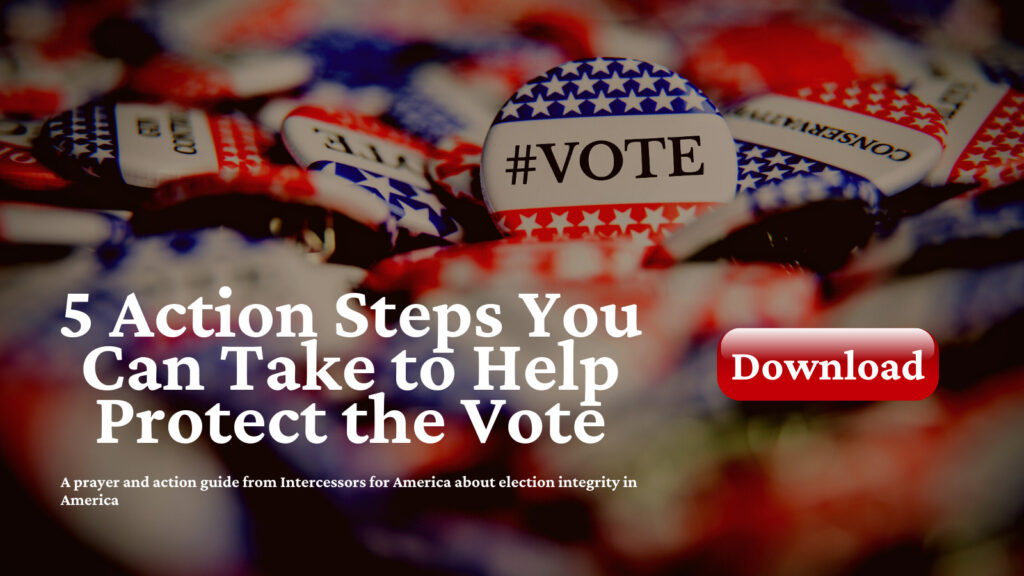
A recent federal district court ruling is a huge win for election integrity. Did you know that Georgia has repeatedly admitted to residency requirement violations in their elections?
From The Federalist. Election integrity advocates recently had a very important win when a federal district court ruled that challenging the eligibility of thousands of voters in Georgia did not constitute “voter intimidation.”
This content is supported by your donations.
Give today.
Back in 2020, True the Vote, Derek Somerville and I, and three other activists were all sued by Stacey Abrams’ Fair Fight organization for allegedly violating the Prohibited Acts section of the Voting Rights Act. …
When the judge ruled in favor of all the defendants in the case and found that there had “not been any violation of Section 11(b) of the Voting Rights Act by any of the named Defendants,” we got to experience “the thrill of victory.” …
While it certainly felt great to finally be exonerated, what exactly did we “win”? …
Once upon a time, the following language served to summarize portions of Georgia’s residency laws on our secretary of state’s voter registration web page:
If you move outside the county in which you are registered to vote in excess of 30 days prior to an election, you have lost your eligibility to vote in the county of your old residence. You must register to vote in your new county of residence. You will be assigned a new voting precinct and polling location. Remember, if you don’t register to vote by the deadline, you cannot vote in that particular election.
You can still see it for yourself in “The Wayback Machine” if you give it time to load.
I wonder why that page vanished?
In fact, I asked Secretary of State Brad Raffensperger, as well as his chief operating officer Gabe Sterling and his general counsel Ryan Germany, about that in an email back in June 2022, but they still haven’t gotten back to me. I wonder why that is?
Well, now I know. So let me tell you the story of “Exhibit 61.”
In May 2021, I gave nearly 35,000 voter records to our secretary of state for an investigation into votes cast in the 2020 general election with residency issues, which his office had already agreed to open. The analysis of the voter data I had done on or about Nov. 25, 2020, indicated those voters had filed changes of address to an address in a different county more than 30 days before the election, but they had apparently failed to re-register there and wound up casting ballots in their previous counties. …
Following that election, more than a third of those voters finally got around to updating their driver’s licenses and/or voter registrations to the exact same addresses they told the U.S. Postal Service they were moving to well before the election. When they did so, they basically provided corroborating evidence that the change of address information they gave the USPS was accurate. …
Now, let’s fast forward to the Fair Fight v. True the Vote case. One day, our attorneys asked me about “Exhibit 61,” which turned out to be an email Fair Fight obtained from our secretary of state through an open records request.
That email contained a “legal analysis” that Raffensperger’s general counsel Ryan Germany had completed for Factcheck.org, which I was previously unaware of, that attempted to discredit my analysis of the voter data I had sent to them to investigate. …
In the email, Germany, like our secretary of state, seems to like to argue that the residency issues we have are caused by the 1993 National Voter Registration Act (NVRA), and there’s not much they can do about them. … The NVRA is certainly a major contributing factor to our underlying list maintenance issues, but it also does not require or implicitly permit voters to lie about where they live when they go to vote. …
Then he also seemed to argue that under our own state law, Georgia Code § 21-2-224, we must allow voters to cast ballots where they are registered, apparently even if they have moved permanently to a new county but failed to re-register there, and their votes would then be cast in violation of both state and federal law. …
So now let me just sum this up for you. The evidence is clear, and it shows we likely had thousands of unlawful votes cast in the 2020 election. Those same issues also happened again in the 2021 Senate runoff, again in the 2022 general election, and will no doubt happen again in the 2024 general election because nothing has been done about them.
Our secretary of state and his staff have repeatedly admitted that these residency violations do occur. They admitted in that now-infamous phone call with President Trump that they were “going through” the lists of potential residency violations, but as you can see in the transcript, they wouldn’t put a number on them, although the Trump attorneys had asked several times for one.
So after painting themselves into quite a corner, what did they decide to do when they realized they couldn’t dispute the evidence or admit Trump and his attorneys were right? They apparently decided to dispute the law itself instead. …
Understand, I am not arguing for felony prosecutions of thousands of Georgia voters, but we cannot fix a problem unless we admit we have a problem. …
As we draw closer to the primaries and the general election, share this article to encourage others to pray for election integrity!
(Excerpt from The Federalist. Photo Credit: Element5 Digital on Unsplash)

